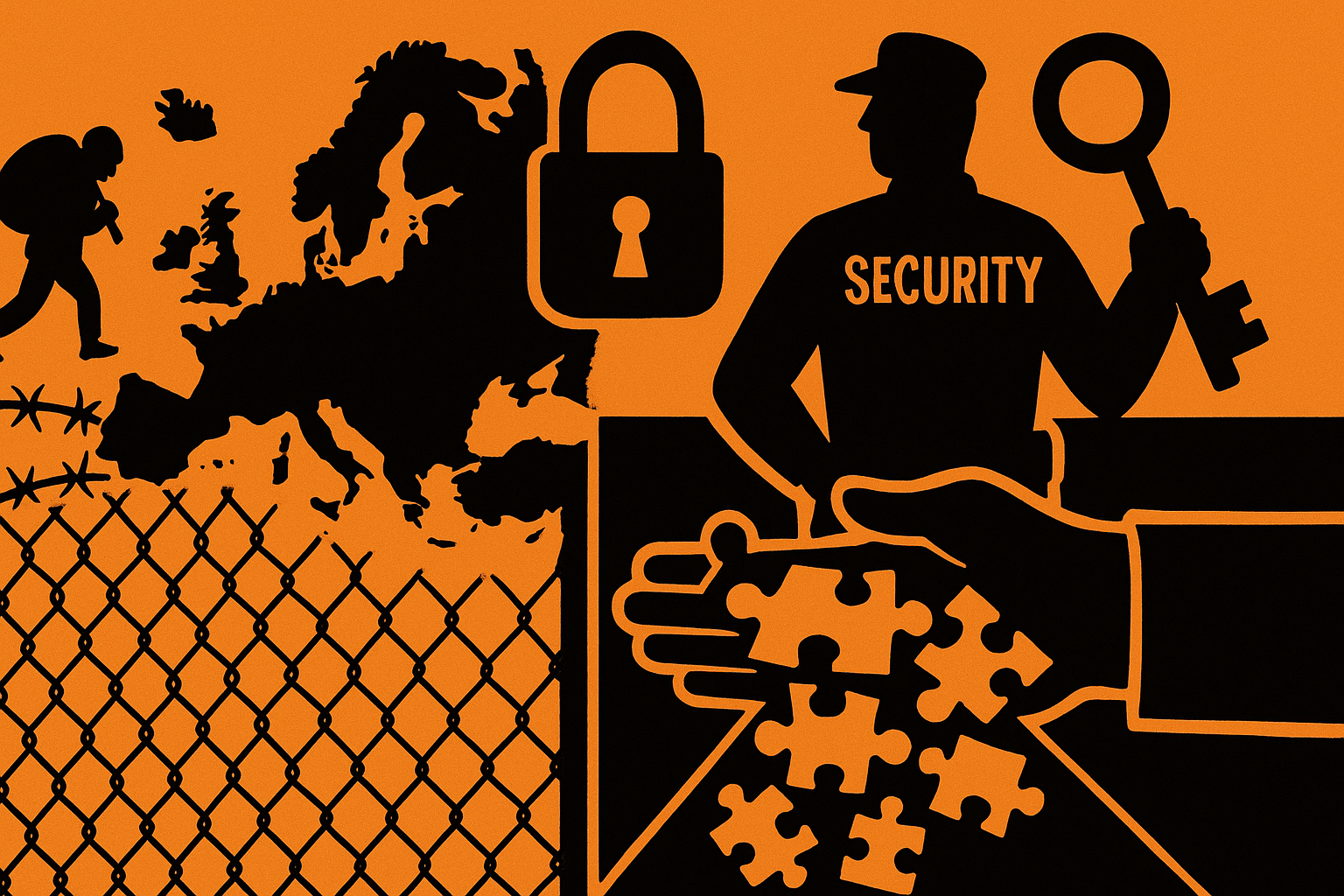In the last decade, migration has transformed from a humanitarian issue into a central political and economic tool through which Europe is redefining its relations with the South. Since 2015, the logic governing European partnerships has changed: cooperation is no longer about development or stabilization, but is conditional on preventing migrants from reaching European shores.
A new equation was born: "money for prevention."
This shift did not come from a single decision, but from a series of overlapping factors: the rise of the European right, the inflated market for surveillance technology, successive crises in the neighborhood, and electoral pressure within Europe. The result? A complex web of policies that makes migration an unspoken condition of every aid package or economic agreement.
First, how has the logic of European cooperation changed?
After the number of asylum seekers in Europe exceeded 1.2 million in 2015, and with more than 82,000 migrants arriving through the Mediterranean in the first half of 2023, Europe turned to the idea of "security first."
Huge funds such as the €5 billion Trust Fund for Africa have been created, but most of it has been spent on border control rather than development funding.
Second: Hidden Conditionalities - Aid vs. Prevention
European aid is now given on an unwritten condition:
"Stop the migrants...you get the money."
A clear example:
The 2023 EU-Tunisia deal, in which Tunisia received a package of more than €1 billion, of which €105 million went directly to border control.
But the deeper transformation was not just financial; it was technical.
Partner countries are encouraged to adopt biometric surveillance systems and record migrant data in favor of European systems, effectively exporting digital control beyond the Union's borders.
Third: Exporting borders-Europe guards itself from the outside
Europe has implemented the "extended borders" model:
Paying neighboring countries to perform interception and interdiction functions on its behalf.
The most notable example is the 2016 EU-Turkey agreement.
Before the agreement, some 861,000 migrants arrived in Greece.
A year later, the number dropped to just 36,000.
As for Libya, with direct European support, the coast guard there returned more than 82,000 migrants between 2017 and 2021, amid conditions described by human rights organizations as "hellish."
Thus, Europe's de facto borders extend from the Aegean Sea to the Libyan desert and Africa to the west.
Fourth: The economy of blackmail-who is pressuring whom?
The equation today is complex:
Europe is blackmailing the South with money, and the South is blackmailing Europe with the migration card.
-Europe ties visas and aid to security cooperation
-Partner countries threaten to open borders if needed
Turkey did it publicly in 2020.
Morocco did it in 2021 when 8,000 migrants crossed into Ceuta in two days.
Thus, cooperation has turned into a short-term relationship, based on bargaining rather than partnership.
Fifth: Human Rights...the Silent Victim
Investigations indicate that more than 40,000 asylum seekers were illegally intercepted in 2020-2021, resulting in at least 2,000 deaths.
In Libya, where boats are returned with European funding, abuses continue without real oversight.
Despite the EU's slogan of "protecting rights," in practice, border protection has been prioritized over the protection of human beings.
Sixth: The rise of the right - from a temporary crisis to a permanent policy
Since 2015, the rise of the far-right has been unprecedented in Europe, making governments fear losing voters if they do not take a tough stance on immigration.
This rise has cemented policies that were temporary and turned them into a permanent, institutionalized approach to Europe's relations with its neighbors.
Seventh, how are these policies perceived by the South?
In Africa and the Middle East, these agreements are seen as diktats rather than partnerships.
Many see them as turning Southern countries into "border guards" for Europe in exchange for aid that does not change the realities of unemployment and poverty.
Some voices reject this role, arguing that Europe is focusing on prevention rather than addressing the roots of migration:
Economic crises, wars, lack of opportunity, and climate change.
A condensed conclusion
Migration is no longer a border issue, but a strategic tool that shapes the relationship between Europe and the South.
But this "security-first" approach may make short-term electoral gains, while losing in the long run:
Values, trust, and real stability.
To watch the video and read the full analytical paper, please scroll down.

Comments